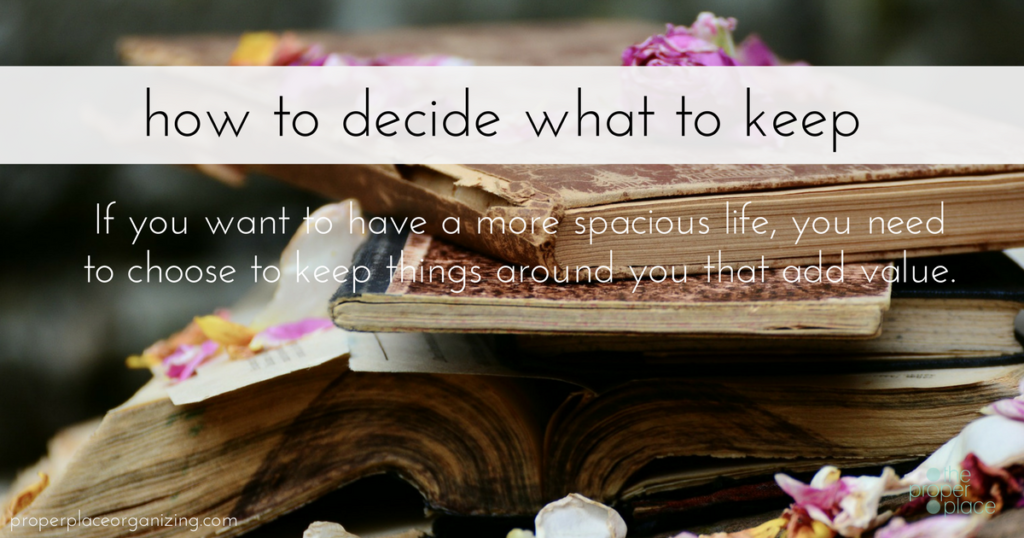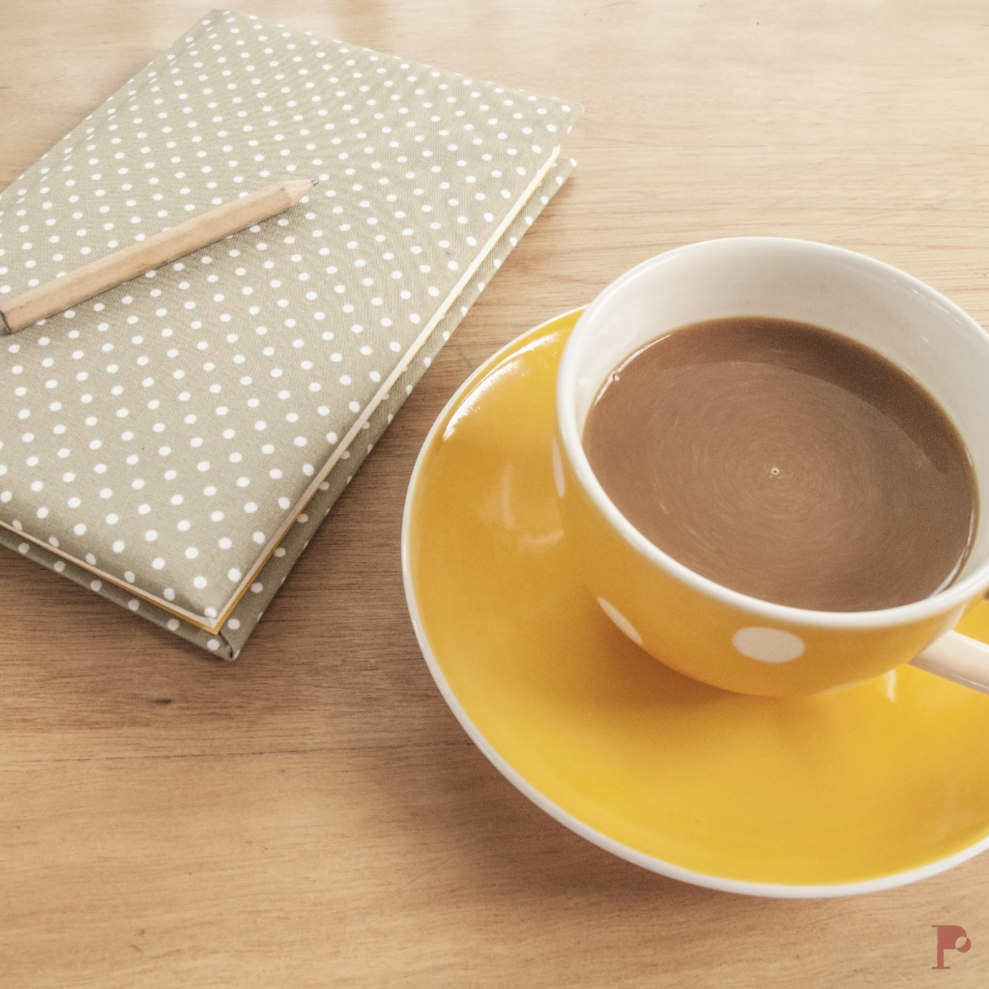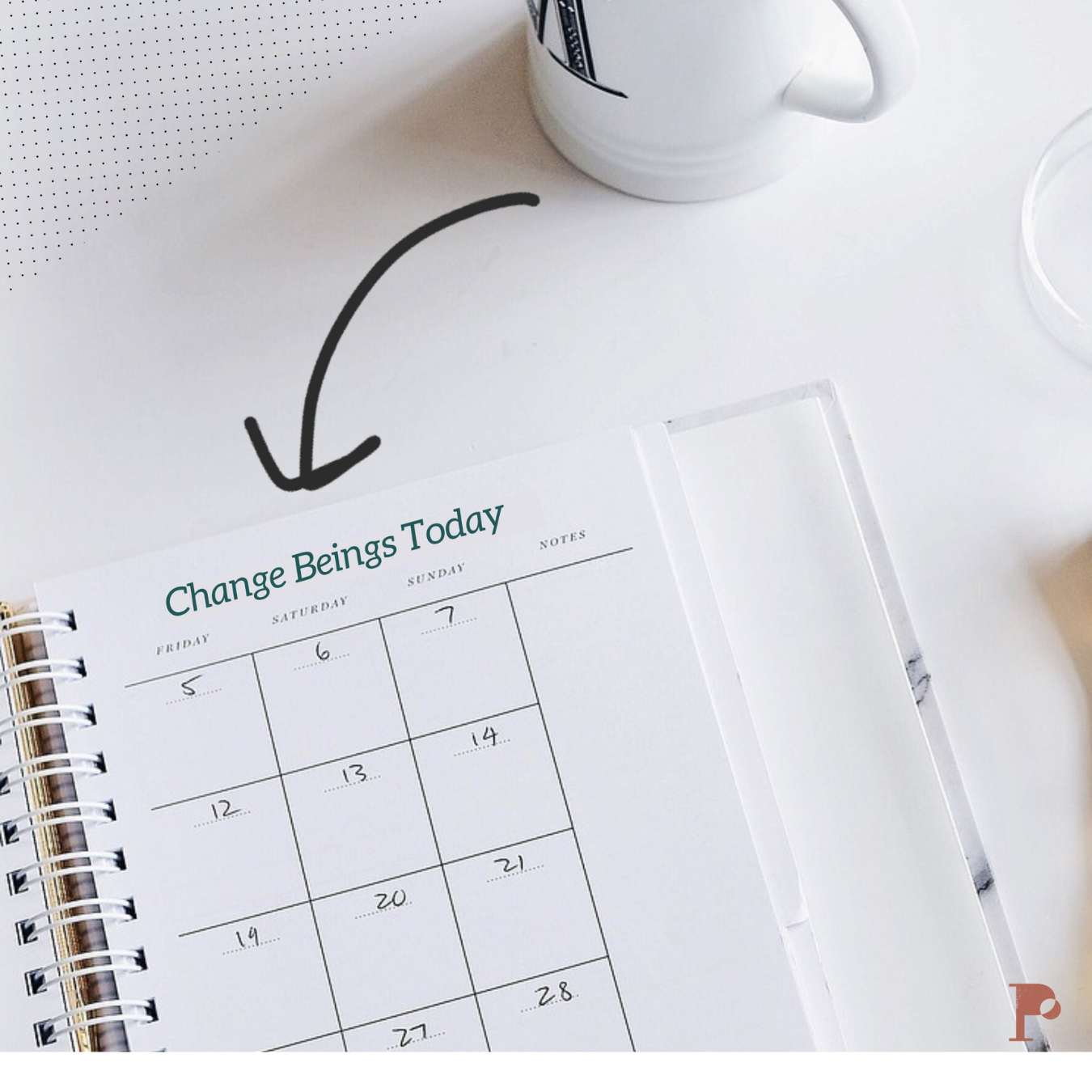Gifts, keepsakes, mementos, kids trophies, travel souvenirs, memories from late loved ones, and those concert tickets from your first date. How do I decide what to keep?
When I tell people what I do, one of the first questions I get asked is, “how do you make people to get rid of things?” And when I’m standing alongside a women in her kitchen who is wavering over the dishes she received as a wedding gift, she exhales, “how do I know what to keep and what to get rid of?”
We have a hard time deciding what to part with because they each hold a special place in our history and mark the beginning and end of life chapters.
Why do we hold on to it?
As we go through life and experience interactions, our brain is making connections. The pathways and neurons are creating memories, solidifying how to do certain tasks, and forming the ‘networks’ of our brain. [I’m not a scientist, but this is the general concept.] It’s like a muscle – as we use it, it learns how we want it to work based on patterns and experiences.
How to decide what to keep
The brain makes choices based on how it’s trained and wired. Therefore, the ‘networks’ created over a lifetime need to be re-checked when making choices to be sure it’s making a choice based on the future, not the past. Challenge your brain to think on an updated network when it comes to making tough choices.
When determining what to keep and what to get rid of, consider different perspectives:
Over complicating the decision When we pick up an item that holds heavy weight in our hearts, our mind goes in a million directions of what to do with it. Try to keep your brain focused on the choice at hand.
Hard departures Consider why it’s hard to part with. What is this item adding to your life that requires you to keep it? Allow yourself to come up with an honest answer. If it’s something deep that you need to work through further, seek support from a friend or professional.
Alternate items Does something else in the house fill the same need that this item meets? Usually we have more than one keepsake from an occasion. A multitude of items doesn’t make the memory any more powerful. Choose an item that captures the memory and part with the rest.
Value added What value does it add to your daily life? What value does it add to your long term plans or goals? Keeping things because you feel like you should, isn’t a good enough reason.
If you want to have a more spacious life, you need to only keep the things around you that add value.
Is there still joy and positivity Women tend to keep items that have negative memories attached [often times without realizing the negativity at first]. Do you want to keep something that gives you a sinking gut when you look at it? No one needs to hold on to bad memories. Learn from them, and let go.
Gift giver aside When someone special gives us something, we have a heart-pull to hold on to it out of guilt, even if it doesn’t fit into our lives/homes. Consider if the gift-giver would still love you even if you passed the item onto someone else who could use it. [most likely they will we are just scared to do it.] A better you is one that doesn’t keep things because of guilt.
Space hog Whether your house is big or small, you have a limited amount of space. Is the item taking up space that could be better used by something that makes you excited? Is the sacrificed space worth keeping the item? Is the inconvenience it causes you to get it off the shelf worth keeping it?
Story: In the top of my laundry closet, I’ve had a container that I absolutely loved but didn’t have a purpose for. Every time I had to get out light bulbs, the container would fall on my head. For years, I dealt with it. Until one day it dawned on me, that this “favorite” container was more of a pain than a joy, and I sadly put it in the donate pile before I changed my mind. Years of something I loved was only not being utilized, but it was giving me headaches!
Pass it forward We have a time and place for things, and then life changes and kids grow and items are no longer of use. Could the item be valued by someone else now? It can help us part with items knowing that they are going to a good cause. Find a place that gives you peace of mind.
I have a client who felt comfort in saying, “I’m done with that now.” Acknowledging she’d used it well, and was ready to give it away. You can only use so many sets of silverware at one time in a household.

Get it out of the way Does the item get in the way of you functioning in life the way you wish to? Don’t let physical things take away from the greater joy in life.
Keeping kids young The items our kids make and the cute clothes they grow out of represent such a treasured stage of life. What represents each stage of life? Choose one or two items to keep from that stage in a labeled memory bin. When it comes to school projects, 2-3 per semester is a sufficient representation to keep in a binder or folder. That would total over 70 items once they graduate from high school.
Those who have gone before us This one is the hardest and I don’t want to take it lightly. Our loved ones who have passed away leave items behind that become precious to us. The memories wont bring them back, but it gives us the feeling that we are keeping them a part of our lives.
I encourage you to keep the memories that can be used and seen daily. Those are the memories that will keep loved ones a part of our daily lives. Does keeping an item because it belonged to them honor the legacy of the person? Not usually, but it could be keeping us from moving forward to honor their legacy. When you make the choice to keep an item, do it because it truly fulfills your current needs, not because it’s easier to keep around.
Grieving changes the way we look at items. And grieving changes over time. I recommend you keep a keepsake bin, labeled with the loved ones’ name on it. As you have special items you aren’t ready to part with yet, and don’t want to have up in your own home, such as notes, journals, etc, put the items in the bin. Limit the amount of items you keep to what fits in the bin. Over time, the grieving changes, but the items don’t. Consider purging the bin as time passes on.
Story: When my mom passed away, I wanted to keep it all. [even as an organizer!] The things I chose to keep the weeks following her death are already seen differently in the short years since her passing. The t-shirt I so badly wanted from her closet, hasn’t been warn and isn’t giving me any comfort folded in a box. But, the dishes she served meals with that I use and the special piece of jewelry and comfy socks I wear, are daily reminders of her gentle spirit. Time helps, and thinking of the big picture helps even more. The items didn’t go with her to heaven for a reason.
In review, consider:
- Does this item give me joy?
- What value does it add to my life?
- Is it taking up space that could be better utilized?
- What’s preventing me from parting with it?
- Could someone else value more from it than me?
- Am I proud to keep it in my home?
- Am I doing my kids a favor by keeping every memory?
- Am I honoring my loved ones – past and present – by keeping it?
If you go through the thought process of making a choice, and you choose to keep it: awesome! There is power in making that choice and knowing that what you have in your home is there because you chose it to be. And if you make the choice that you’re done with the item, be confident that you are taking steps toward a more spacious life.
Note:
You can do this same exercise when it comes to your calendar. Items in your calendar can be taking up space and mental energy that need to be purged.
WANT MORE?
As a free gift to you, download this resource: How and Where to store Keepsakes. It’s a simple guide to help get you started! Want more support in making choices? Contact Michelle at The Proper Place for support in life, home, and balance.



